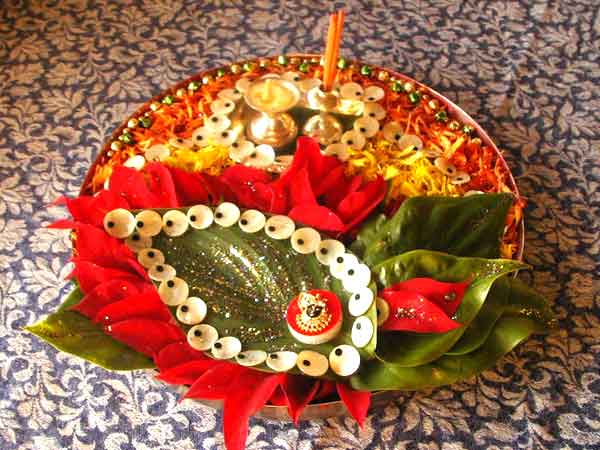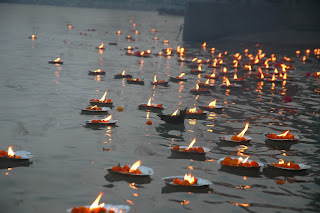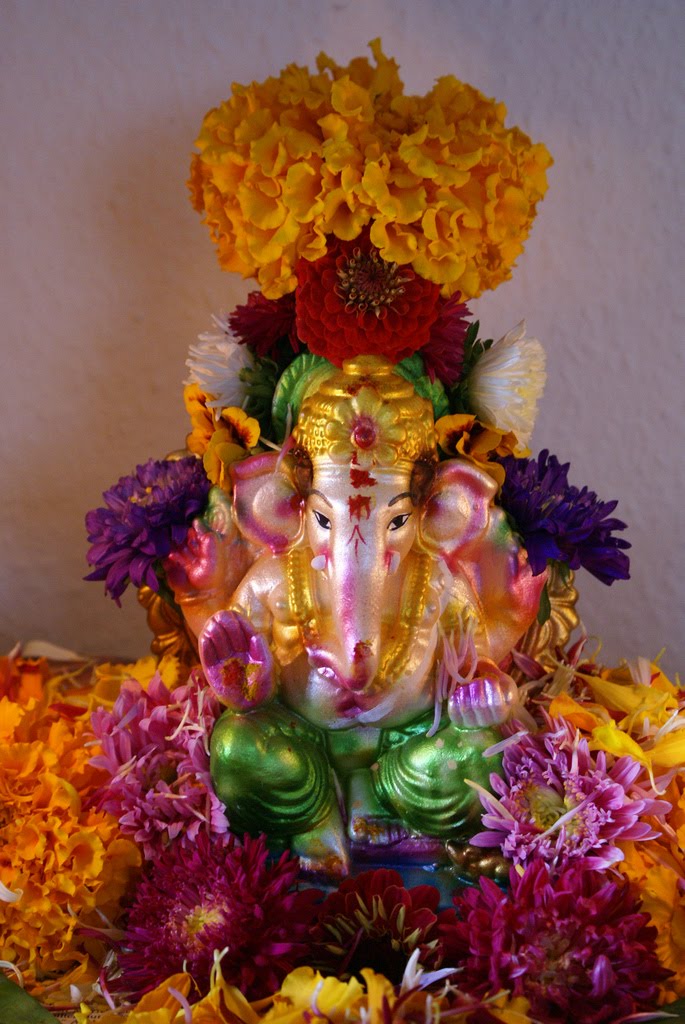This is a guest post by Abhay Kanwar.
When I was a little kid, I remember every evening accompanying my grandmother for her trip to the temple, carrying a small pooja thali, decorated with a diya, various colored flowers and some sweet to serve as Prasad at the end of her pooja, the Prasad being the only reason that I accompanied her. We had a small mandir in our house, which consisted of various portraits of gods and goddesses, all of which were decorated with garlands, made out of flowers. One particular portrait that always caught my attention was that of a lady, sitting on a lotus flower, which I was able to recognize, was a lotus (as I had learned in kindergarten about India’s national flower).
-Alfred Lord Tennyson
One of the rituals that I recall that my grandmother used to carry out each evening, consisted of gathering flowers from our garden and later offering them to the idols of various gods and goddesses in the temple. As I grew up, I learned more about the ritual and realized its true significance.
Throughout history, flowers have been associated with the creator, religion, worship and with countless myths and legends across various civilizations that existed globally. Flowers have however remained an integral part of Indian culture. Lotus is the national flower of India and hence, there is a lot of mythological significance of flowers with Gods and Goddesses in our culture, than in any other in the world.
The very name of the Indian worship ritual called Pooja can be roughly translated as the Ritual of flowers. In India, flowers are considered to be made up of the 5 different elements of nature, namely, Earth, Water, Fire, Air and Ether. They play a very crucial role in celebrations, festivities and prayers, and as a result of their unique and valuable role, there are certain un-explainable, subtle and cryptic qualities of a flower. It is believed that a flower has Soul like every human being and it is because of this very reason that flowers hold an important position in our culture. Although many kinds of flower names are mentioned in our scriptures but some of the most significant ones are the Lotus flowers, Manjaree or tulsi flowers (associated with Lord Vishnu), Dhatoora flowers (associated with Lord Shiva), Red Hibiscus (associated with Lord Ganesha).
Out of all the traditions followed in India, Indians are famous for welcoming their guests, with flower garlands. This simply signifies the respect for our guests and helps in building the core of the moral value, Atithi Devo Bhava. Apart from flowers being offered to the Gods and Goddesses in our culture, in Indian marriages an exchange of flower garlands takes place between the bride and the groom, which depicts respect and affection towards each other.
Flowers hold a vital place in every culture, the Greeks, Romans, Egyptians, Buddhists etc, since ancient times have made flowers and integral part of their respective cultures.
Celebrate all your special occasions with FlowerAura, let your dear ones know how much you love and value them with our amazing gifting options. We promise to deliver to their doorsteps with utmost love and care.
Please also checkout our Special Gifting Range which we are sure will interest you.
More about the author - Abhay Kanwar



No comments:
Post a Comment